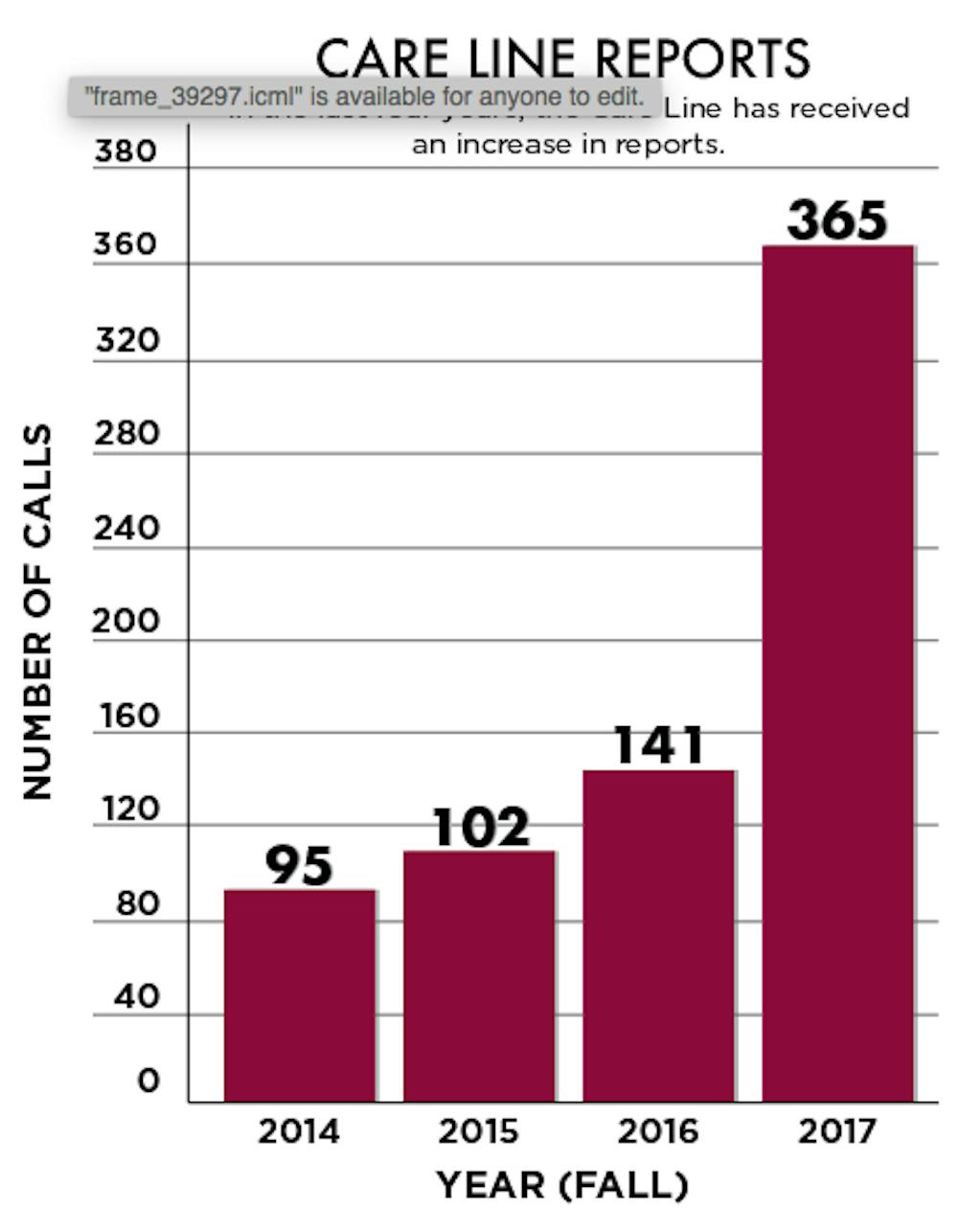Student support line receiving more reports each semester
Deanna Johnson sits at her desk with a big, red heart charm on her necklace and a large binder full of resources she consults when responding to reports made to the Care Team.
“People joke that I say, ‘have bag, will travel,’” Johnson said about her book of resources. “I keep this with me at all times.”
Johnson is team coordinator for the Care Team at Central Michigan University. The Care Team aims to help students and connect them with resources they need, whether those resources are on campus, in the Mount Pleasant area or near the student’s hometown. The team comprises representatives from 10 offices around campus that provide students help with mental health, financial, academic and other issues. Among the offices included are the CMU Police Department, the Counseling Center and Student Disability Services.
Care Team has members in various offices to make sure students can get connected with someone best suited to help them, either by directly consulting with students or by helping students get in touch with groups who can help.
CMU established the Take Care initiative in 2003. It put in place steps students can take to maintain the physical, emotional, and mental well-being of themselves and others. The university saw how helpful the initiative was and expanded on it, Johnson said. This was when the Care Team was started in 2005.
In 2013, the university further expanded the system when a reporting mechanism was put into place. Students, faculty members or family members can now file reports on students they are worried about, Johnson said. Students in need can even file reports on themselves.
There is a phone line and an online application for reports, Johnson said, but the online reports are the preferred option.
When a report is made, it goes to the inbox of all team members. From there, the team decides who is best suited to reach out to that student on a case-by-case basis. Except for extreme cases like when a student threatens to harm or kill themselves, the team must respect if a student declines their help.
“We are careful about trying not to be intrusive,” Johnson said. “The spirit of this effort is to look out for each other.”
In the last four years the number of reports have increased.
Fall 2014: the team received 95 reports
Fall 2015: the team received 102 reports
Fall 2016: the team received 141 reports
Fall 2017: the team received more than 365 reports
The increase in reports is due to a variety of factors, Johnson said, and the growing awareness about the reporting system is one of them.
CMUPD Lt. Larry Klaus, a member of the Care Team, believes one of the factors could be that students are more open to talk about their mental health.
“It’s not just us here at CMU, it’s throughout the country that we are seeing this,” Klaus said.
As efforts have grown, and the amount of reports have increased, Klaus said. It’s been challenging to keep up.
“We’re not overloaded, but we’re getting close,” he said. “We may need to pull in additional personnel to help address the (reports).”
CMUPD Sgt. Mike Morrow works with Klaus to check on students in distress and connect them with mental health resources. They also work to transport students who are having a mental health crisis to the Counseling Center so they can be helped in an urgent appointment.
Freeland senior Macey Miller heard about the Care Team when a member spoke to the Honors Outreach Network and is glad it’s a resource available to students and faculty members on campus.
“It’s a really good option for students who are struggling with mental health or (in their) social life,” Miller said. “It’s nice the faculty are willing to dedicate their time to make sure that students have access to resources they need.”








